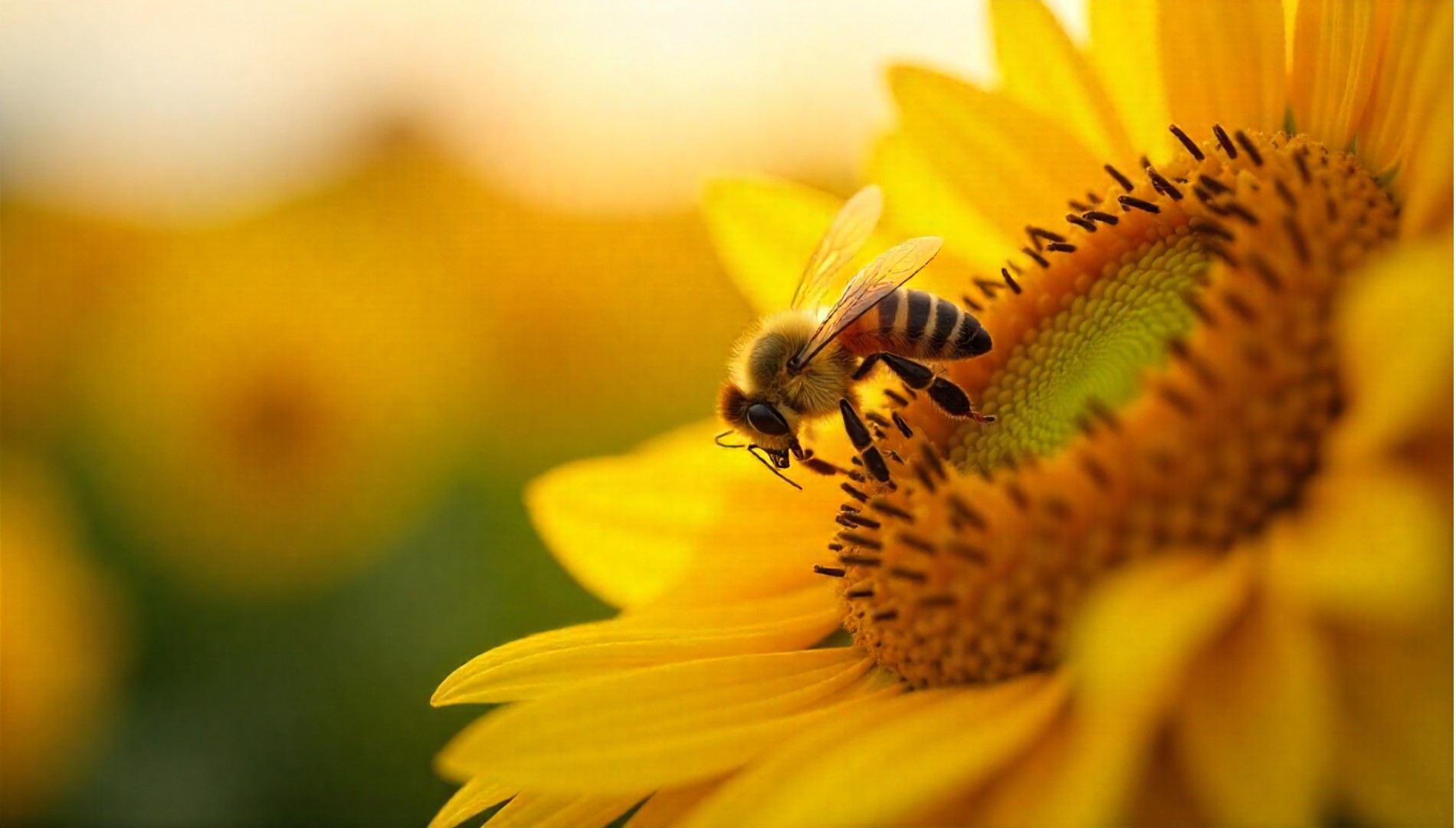
The Role of Bees in Agriculture: Guardians of Global Food Security
Introduction
Bees are often praised for their honey, but their greatest contribution lies in something far more critical—pollination. Responsible for enabling the reproduction of over 75% of global food crops, bees are indispensable to agriculture, biodiversity, and food security. Without them, much of what we eat would disappear from our plates, and the ecological systems that support farming would collapse.
Why Pollination Matters
Pollination is the process of transferring pollen from the male parts of a flower to the female parts, enabling fertilization and fruit development. While wind and other animals contribute, bees—especially honeybees (Apis mellifera) and wild bees—are by far the most efficient and consistent pollinators.
According to the Food and Agriculture Organization (FAO), pollinators affect 35% of global agricultural land and contribute directly to the yield of 87 of the leading food crops worldwide. These include apples, almonds, blueberries, cucumbers, and coffee—staples of both subsistence and commercial farming systems.
Economic Impact
The economic value of pollination services provided by bees is immense. A landmark study published in Science (Gallai et al., 2009) estimated the annual global economic value of pollinated crops at $235–577 billion USD. In the United States alone, honeybee pollination contributes over $15 billion to crop production each year, as per USDA reports.
Beyond direct crop yields, bees help maintain the genetic diversity and resilience of plants—attributes that are becoming increasingly important in the face of climate change.
Threats to Bee Populations
Despite their importance, bee populations are under severe threat. Key factors include:
- Pesticide exposure (especially neonicotinoids)
- Habitat loss due to monoculture farming and urban expansion
- Climate change altering flowering cycles and foraging patterns
- Diseases and parasites, such as the Varroa destructor mite
According to the Intergovernmental Science-Policy Platform on Biodiversity and Ecosystem Services (IPBES), over 40% of invertebrate pollinator species, particularly bees and butterflies, face extinction.
Sustainable Farming and Bee Protection
Fortunately, there are science-backed solutions that can reverse this trend:
- Integrated Pest Management (IPM): Reduces chemical use and prioritizes bee-friendly alternatives.
- Agroecological practices: Include planting cover crops, flower strips, and maintaining wild habitats around farms.
- Pollinator-friendly certification schemes: Such as Bee Better Certified, promote best practices and incentivize protection.
Countries like France have banned certain bee-harming pesticides, and the EU's Farm to Fork strategy emphasizes restoring pollinator habitats. Community-based beekeeping initiatives are also flourishing in regions from Sub-Saharan Africa to Southeast Asia.
Innovations in Apiculture
Modern apiculture (beekeeping) is evolving too. Technologies like remote hive monitoring, AI-driven pollination tracking, and genetic breeding for disease resistance are emerging. These innovations offer precision agriculture benefits while supporting bee health.
Some startups are even exploring robotic pollinators, but experts agree they are not a replacement for living ecosystems. Protecting natural pollinators remains the most efficient and sustainable approach.
Conclusion
Bees are more than honey producers—they are keystone species in agriculture and ecosystems. Their role as pollinators directly influences food availability, nutrition, and economic stability around the world.
But their continued survival depends on informed policy, sustainable farming, and collective action. By prioritizing bee conservation today, we ensure a more food-secure and biodiverse tomorrow.
🐝 Did you know? One out of every three bites of food you eat exists because of pollinators like bees.
References
- FAO. (2021). Why Bees Matter. Food and Agriculture Organization of the United Nations.
- Gallai, N., Salles, J.-M., Settele, J., & Vaissière, B. E. (2009). Economic valuation of the vulnerability of world agriculture confronted with pollinator decline. Ecological Economics, 68(3), 810–821.
- USDA. (2023). The Value of Honey Bees to U.S. Agriculture. United States Department of Agriculture.
- IPBES. (2016). Assessment Report on Pollinators, Pollination and Food Production. Intergovernmental Science-Policy Platform on Biodiversity and Ecosystem Services.
